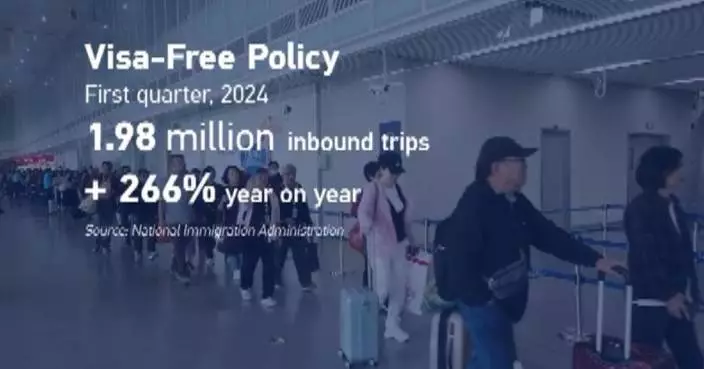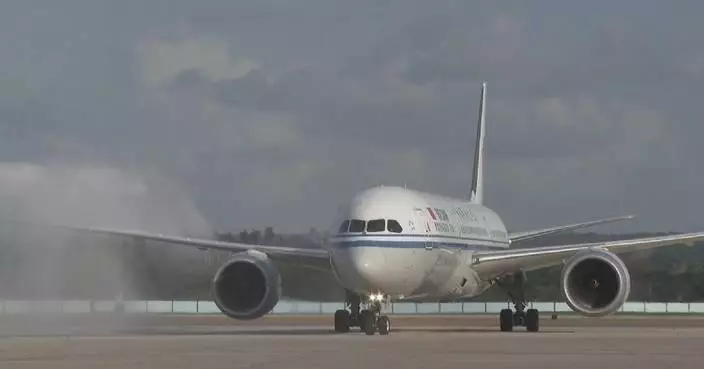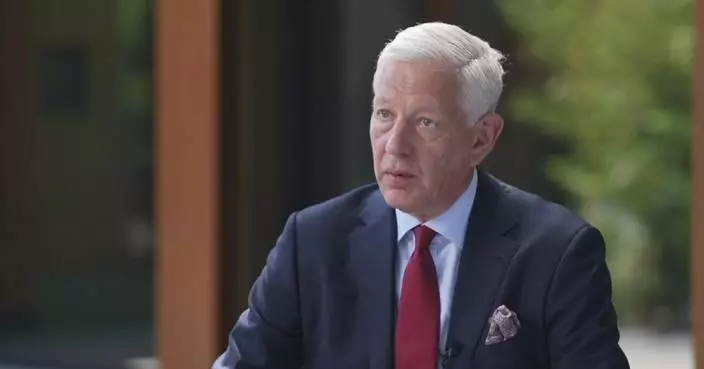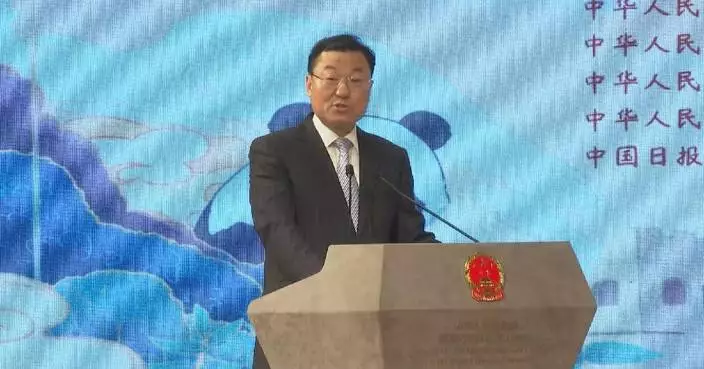The ongoing 135th session of the China Import and Export Fair, also known as the Canton Fair, has gathered fresh faces from across the world while welcoming back old friends visiting for more opportunities.
As of Thursday, a total of 234,671 overseas buyers from 215 countries and regions had participated in the event, surging by 25 percent from the previous session.
Ting Young Kang, a buyer from Malaysia, said he has been a long-standing customer since 1990.
"My father brought me here to the Canton Fair for the first time in 1990 when I was 18 years old. And I have also visited here almost every year, and witnessed the progress and development of the event over the years. I alway meet so many old friends when I am here," said Ting.
Meanwhile, Goji berry - the Chinese wolfberry fruit - has emerged as a star exhibit at the fair, as exhibitors of this little red soft fruit are going all out to win over more foreign clients and expand their overseas market.
Ao Xing, an exhibitor from northwest China's Goji-producing Qinghai Province, has participated in the fair more than ten times.
"The market demand for our products is huge. Therefore, we also purchased more equipment this year and increased production lines specifically for manufacturing this product. Through the Canton Fair, we hope to reach to more customers," she said.
The 135th session of the Canton Fair runs from April 15 to May 5 in three five-day phases.
Themed as "A Better Life," the third phase of the 135th session of China Import and Export Fair, or Canton Fair, started on Wednesday, focusing on trendy household goods and daily essentials.
Launched in 1957 and held twice a year, the Canton Fair is considered a major bellwether for China's foreign trade.

Canton fair gathering for old friends
The Russian auto market has undergone a major shift in recent years,with Chinese brands surging in popularity and now capturing over half of new car sales in Russia.
Following Russia's conflict with Ukraine, major companies from Germany, the U.S., South Korea, and Japan ceased official sales, supplies, and services in the country, leading to a significant increase in prices for their cars and spare parts.
This void has been filled by Chinese car brands, whose market share in Russia surged to over 60 percent in 2023, nearly doubling from the previous year. In contrast, China held just a 9 percent market share in February 2022.
Ekaterina, an owner of a Chinese car who switched from a European brand, cited the complications in servicing her old car after Western car brands exited the Russian market. She highlighted the stability of Chinese car prices as a key factor behind her decision.
"A year ago, many people had concerns about whether to switch to a Chinese-made car and some of my friends decided to do so. People looked at the car, listened to the pitch, and made the choice naturally because the price is stable," she said.
Sergey Tselikov, director of the analytical agency Avtostat, predicts further growth in 2024, as Chinese companies have already exported record volumes of cars to Russia.
"First, almost all other brands have stopped supplying to Russia. Automakers in South Korea, Japan, Europe and the U.S. have halted supplies amid fears of sanctions," said Tselikov.
Tselikov also pointed to the significant quality improvements in Chinese car manufacturing over the past five to seven years as another reason for their popularity in Russia.
The share of dealerships selling Chinese cars in Russia witnessed a remarkable increase, rising from 31 percent to 65 percent in 2023, while the number of models and modifications continues to expand. Chinese automakers have even re-purposed some factories previously used by Western car manufacturers.
Russia is also encouraging localization efforts, hoping to revive its own car manufacturing industry.
"The [Russian] Ministry of Industry and Trade and the government are stimulating and trying to ensure that the cars are not only imported but assembled in Russia and then hopefully localized. In Russia, this is a problematic endeavor because it is very difficult to produce cheaper components in Russia than those produced in China," said Tselikov.
Russian companies are seeking collaboration with Chinese firms to domestically assemble Chinese cars. Moskvich, a long-established Soviet-era car company, has started assembling Chinese cars under its own brand.

Chinese cars reshape Russia's auto industry as Western brands scale back










